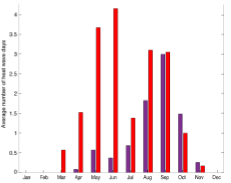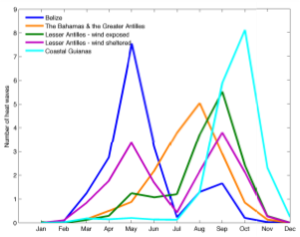How Does Heat Affect Us?
Many people do not realize that heat is one of the most dangerous climate hazards.
Excessive heat affects
- our health: heat causes discomfort, illness and death;
- our economy: hot weather reduces labour productivity;
- our energy needs: access to cooling requires energy (e.g. A/C, fanning);
- our food production: crops and livestock suffer from excessive heat, reducing food productivity.
Stay informed. Be ready for heat.
Climate and weather information enable early action in preparation for hot weather.
Hot weather is a factor of temperature and humidity. The Heat Index is a feels-like temperature index combining both factors. Because temperatures and humidity are lower between December and February, we generally feel comfortable then. However, many days in August, September and October feel far from comfortable because of high humidity.
To better prepare for excessive heat, the CariCOF has developed, and is now releasing experimental heat outlooks for the hotter part of the year (i.e. starting in May and up to October/November), containing forecast temperatures and heatwave frequency, as well as implications of the heat climatology and heat forecasts for the next three months.
Besides the perception that heat discomfort in general is highest between August and October, the figures below demonstrate that heatwaves, too, tend to be frequent between August and October. Note that, because humidity is still relatively low until June/July, heat index-based heatwaves tend to be few until July in most places.

Figure 1 – Comparison of the number of heatwaves in an eastern Caribbean location between temperature (red) and heat index-based (purple) heatwaves by month.

Figure 2 – Seasonality of heat waves across the Caribbean
